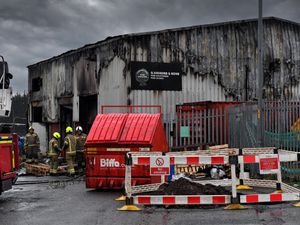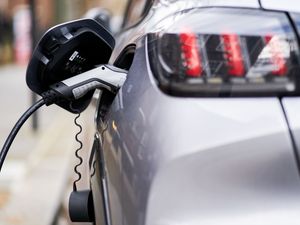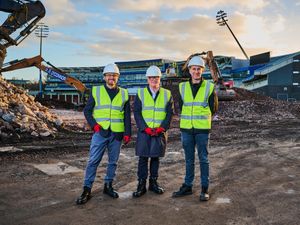£1.1bn Budget to deliver transport schemes, homes and jobs
The continuing construction of the Metro line to Brierley Hill and new railway stations at Darlaston and Willenhall are included in the £1.1 billion West Midlands Combined Authority budget for the next 12 months.
The balanced budget, approved by the WMCA board, also sets out major investments to cut carbon while bringing new homes and jobs. It is up from £879.2m for the current year.
More than £805m of funding for infrastructure, land regeneration and job training schemes features in 2023-2024 spending.
The £1.1bn of revenue and capital expenditure aims to protect existing services and help support local people facing cost of living and quality of life pressures.
By using funding secured from government and other sources an indicative capital budget of £805m allocates money for investment in projects that can support the region’s Plan for Growth and #WM2041 net zero ambitions by building a low carbon, more inclusive economy that gives people greater opportunities to improve their skills, find better jobs and secure good quality, affordable homes.
Despite significant capital investment allocated for the coming 12 months, the budget warns of tough challenges due to the adverse impact on the current capital programme from increasing material, energy and construction costs. It warns this will continue into the future if current global economic pressures and rising inflation persist.
As a result, the actual amount allocated for capital investments will be determined by the current financial year performance meaning a final 2023-2024 capital budget will need to be presented to the WMCA Board early in the new financial year.
Andy Street, the Mayor of the West Midlands and WMCA chairman, said: “It’s no secret that the UK is experiencing tough times at the moment and the WMCA is not immune to these challenges. That’s why we’re taking suitably prudent steps when it comes to our finances as we look ahead to 2023-2024.
“Once again, there will be no mayoral precept which means local residents will not bear any additional tax burden – something I hope will be welcomed given the society wide cost of living pressures we’re currently facing.
“Far from being a reason to press pause, this daunting backdrop is precisely why we must seize the moment and double down on the transformative investments that will improve the quality of life for local people right across our region in the months and years ahead.”
The indicative capital budget includes a £357m package of major transport projects to expand and decarbonise the network including new rail lines and stations, Metro tram lines, pollution free buses and safe walking and cycling routes to better connect people to jobs, education and training opportunities.
The capital budget also includes £242m to deliver the second year of the City Region Sustainable Transport Settlement.
In addition to this, the £133m transport revenue budget will be used to protect existing services which have been hit hard by rising energy and operating costs and falling passenger numbers on the back of the Covid pandemic. This includes £59m for concessionary travel for older people, children and people with disabilities and £6.6m for accessible transport. More than £14m is made available for subsidised bus services.
Around £154m of skills funding, including an adult education budget of £141m, is allocated to the WMCA's economic delivery, skills and communities team, working closely with local authorities, to fund training courses.
A further £68m is allocated to the unlocking and regeneration of more derelict industrial sites, often referred to as brownfield land, for new, energy efficient and affordable homes as well as commercial premises for job-creating businesses to grow, helping to protect the green belt in the process. .
More than £142m in capital grants is allocated to local authorities to help fund major infrastructure projects.
To balance this year’s budget the WMCA needed to use more than £9m of reserves and warns that it could face a shortfall in funding of nearly £50m in 2027-2028. This forecast would be revised, however, if the region’s forthcoming Devolution Deal with Government opens up new funding and revenue opportunities.
Councillor Bob Sleigh, Deputy Mayor and WMCA portfolio holder for finance, said: “Despite the difficult global situation right now with high inflation, supply chain issues and other cost-of-living pressures, I’m pleased we have been able to protect services yet again and put forward a balanced budget even though that has meant using a large amount of our reserves.
“There are clearly financial challenges ahead but this budget sets out to support our Plan for Growth and get our economy back on track. It also looks to provide the help local people need to get through these challenging times by focusing funding on the things that really matter to them like effective transport, good quality and affordable homes, decent jobs and the fight against climate change.”





